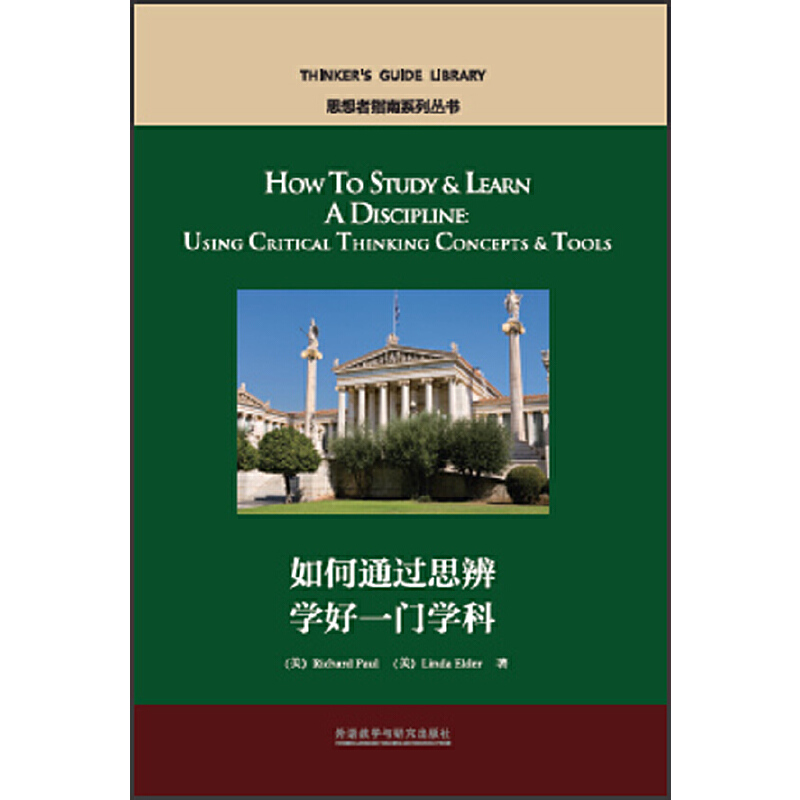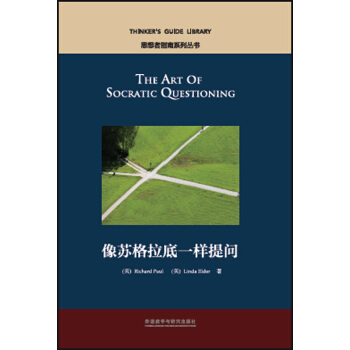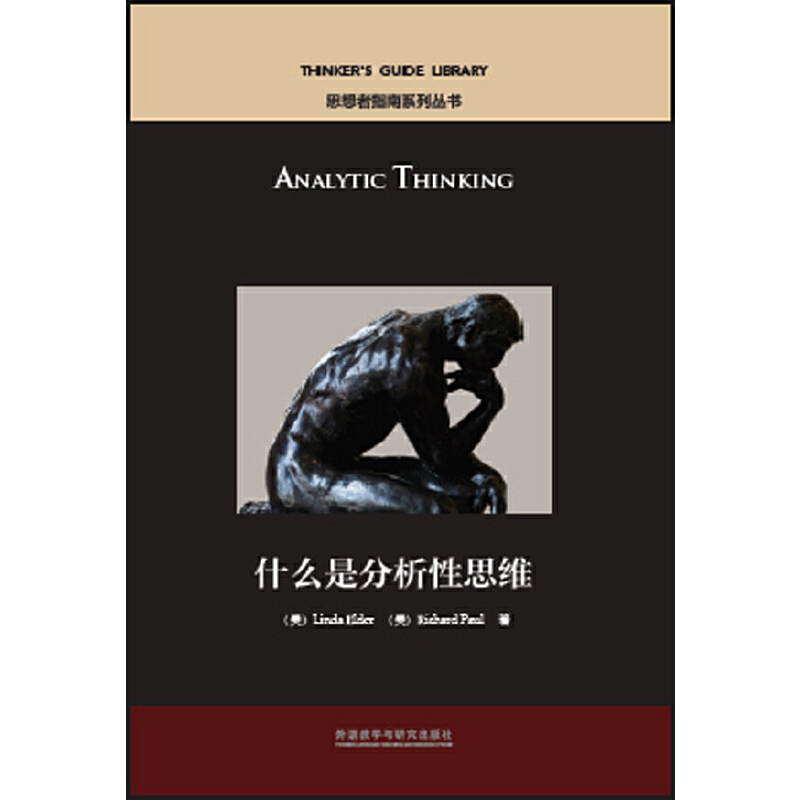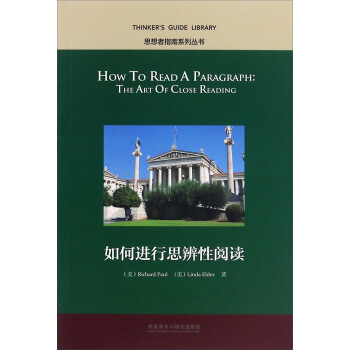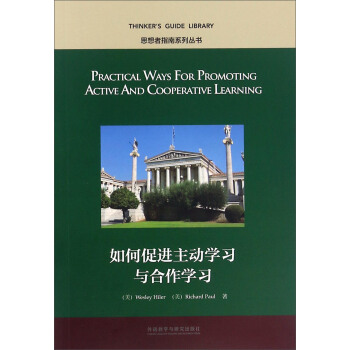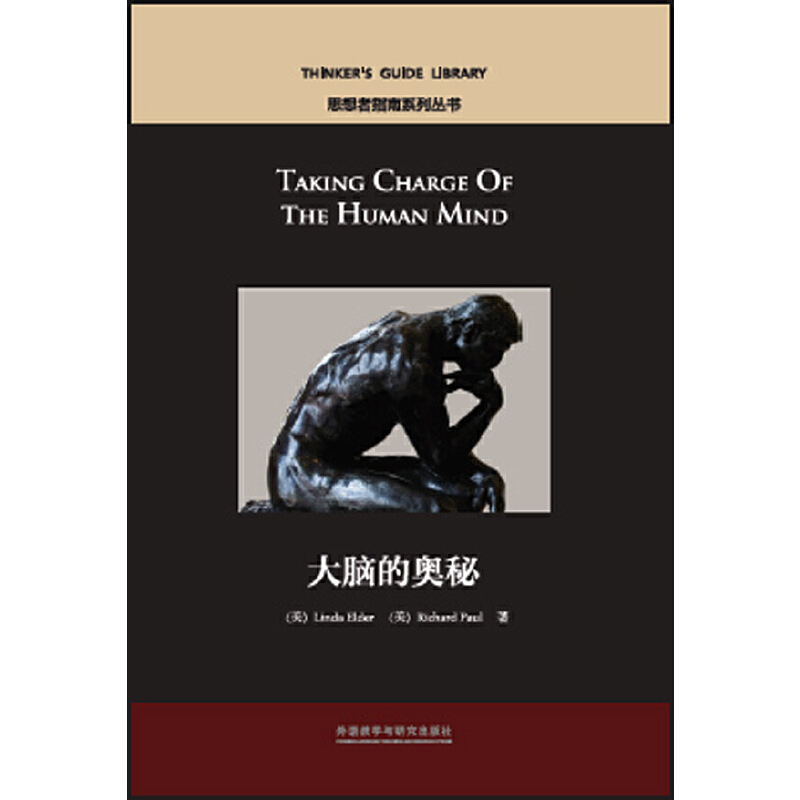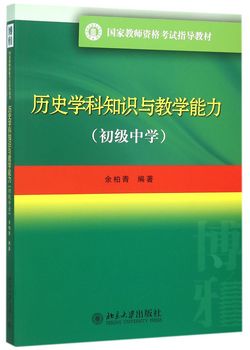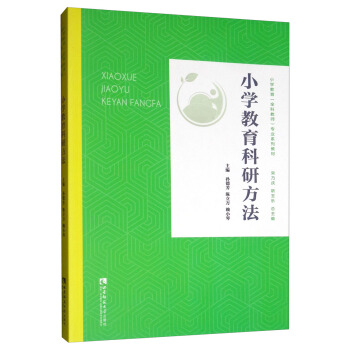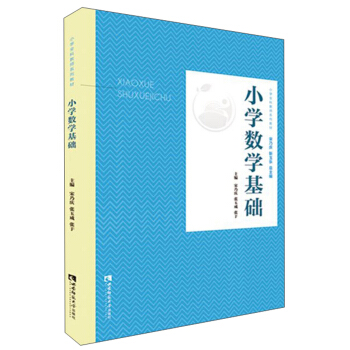如何通过思辨学好一门学科
定价:¥9.90
作者: Richard Paul,Linda Elder
出版时间:2016-05
出版社:外语教学与研究出版社
- 外语教学与研究出版社
- 9787513574730
- 238277
- 2016-05
- 44
内容简介
“思想者指南系列丛书”由外研社原版引进,供读者培养、提升思辨能力(批判性思维能力)。作者Richard Paul和Linda Elder是两位专门从事思辨能力研究的专家,他们创办的专门研究和培训思辨能力的机构Foundation for Critical Thinking享誉全球。Richard Paul和Linda Elder认为,思辨能力并不是玄虚的存在,而是有方法可依、有规律可循,他们将长期研究发现并总结的方法与规律凝聚在了“思想者指南系列丛书”当中。“思想者指南系列丛书”共21本,分为基础篇、大众篇、教学篇,分别针对入门基础学习者、社会大众读者、广大教师及学生阅读学习。“思想者指南系列丛书”语言简洁、内容明晰、易于阅读、方便携带、价格实惠,是学习思辨能力不可多得的好书。
目录
Why A Thinker's Guide on How to Study and Learn A Discipline?..........iiiHow to Use This Part I: Laying the Foundation..........118 Ideas for Becoming a Master Student..........1How to Study and Learn a Discipline..........3How to Learn with Discipline..........5How to Identify an Underlying Idea for the Subjects You Study..........6Understanding Content Through the Thinking It Requires: A Key to Deep Learning..........7How to Identify the Structure of a Subject: The Elements of Thought..........8How to Figure Out the Form of Thinking Essential to Courses or Subjects..........9How to Think Within the Ideas of a Subject..........11How to Analyze the Logic of an Article, Essay, or Chapter..........13How to Figure Out the Logic of a Textbook..........15How to Understand Ideas..........17How to Control (and Not Be Controlled by) Ideas..........18How to Understand Reading, Writing, Speaking, Listening, and Thinking..........19How to Learn Ideas from Textbooks..........21Part II: Following Through..........23How Good a Student Are You?..........23How to Think Through the Defining Traits of the Disciplined Mind..........25How to Understand Intellectual Standards..........27How to Evaluate an Author’s Reasoning..........29How to Raise Important Questions Within a Subject..........30How to Distinguish One-System from Competing-Systems Disciplines..........31How to Ask Questions About Fields of Study..........33How to Ask Questions About Textbooks..........34How to Understand the Logic of Biochemistry (An Example)..........35How to Think Biologically (An Example)..........36How to Think Historically (An Example)..........37How to Understand the Logic of Philosophy, Sociology, and Archaeology (Three FinalExamples)..........39How to Understand the Role of Questions in Thinking and Learning..........42How to Distinguish In

